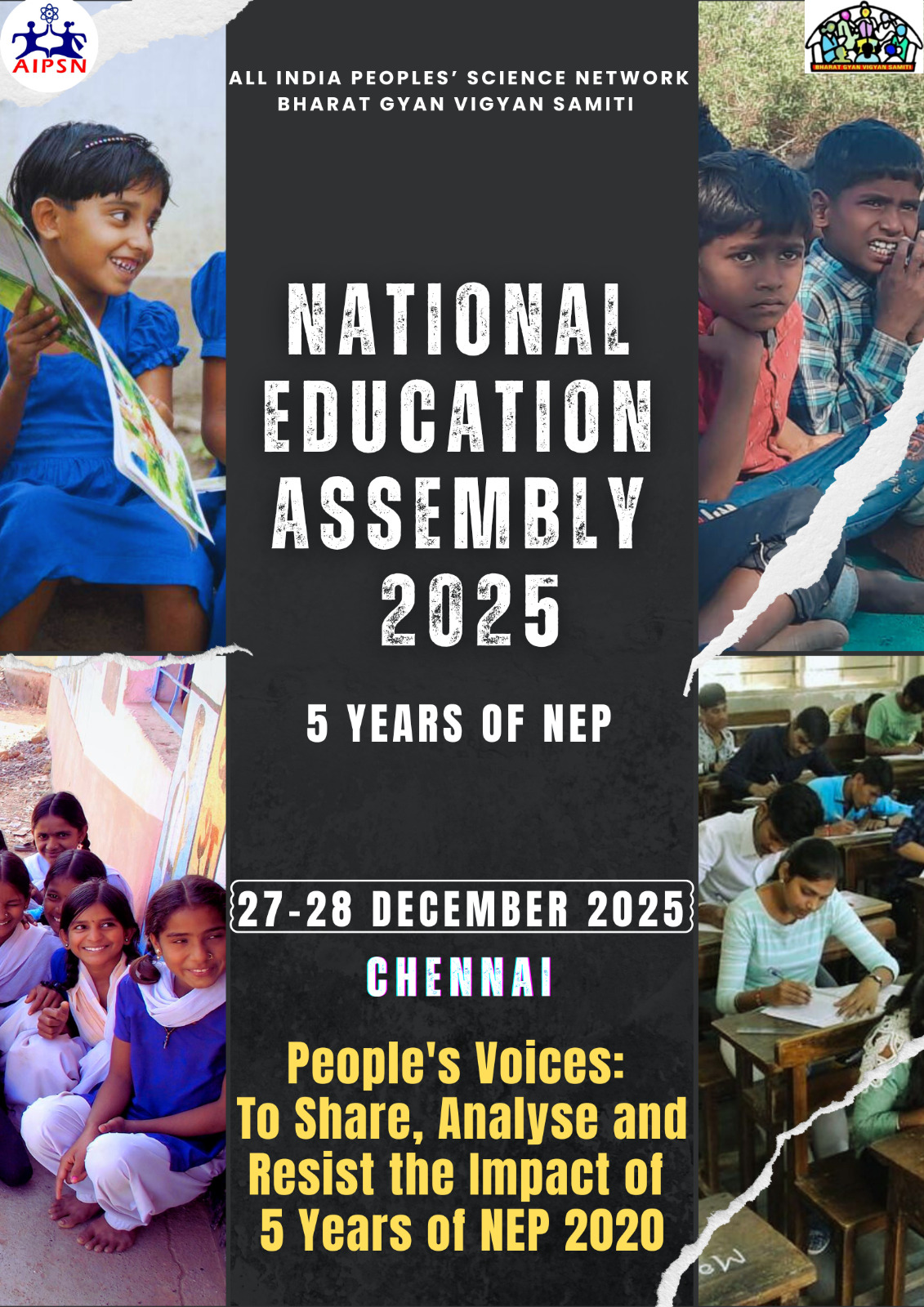National Education Assembly
AIPSN and BGVS are organising the second National Education Assembly in Chennai on 27,28 December. As part of the #SaveEducationSaveTheNation campaign AIPSN and BGVS organised the first National Education Assembly on 30th April 2023 at New Delhi. It was supported by other fraternal organisations such as JFME, AIFUCTO, STFI, SFI, AIDWA, AFRTE, RTE forum, FEDCUTA, JNU Teachers Association, DTF, All India Education Committee, AIFAWH. The national assembly discussed an alternate education policy and the demands of the People's Science Movement under the campaign #SaveEducationSaveTheNation to intensify the actions of resistance in the times that followed.
80 Years After Hiroshima & Nagasaki: Need Total Nuclear Disarmament
A world under the shadow of nuclear weapons is not a world at peace. The suffering endured in Hiroshima and Nagasaki must never be repeated. AIPSN renews its call to end the nuclear threat by abolishing all nuclear weapons and rebuilding a powerful people’s movement for peace, disarmament and saving lives.
Statement on High-Level Committee on Air India 171 Crash
...India’s Aircraft Accident Investigation Bureau (AAIB) has started its independent inquiry into the causes and circumstances surrounding the crash ...However, for unexplained reasons, the Union Ministry of Civil Aviation has constituted a High Level Committee (HLC) to also inquire into the crash! ...the HLC is an undesirable parallel investigation which will, by virtue of its backing by highest levels of government, undermine the AAIB investigation. AIPSN calls upon the Ministry of Civil Aviation to immediately revise Terms of Reference of the HLC, and remove all objectives, scope of work and mandates which overlap those of the AAIB investigation....AIPSN welcomes the broader scope of the HLC inquiry for promotion of aviation safety, excluding investigation into the crash...Click link to read more details
Statement of solidarity with Dr. Ali Khan Mahmudabad of Ashoka University, against state led harassment! Uphold the Right to Freedom of Expression!
The AIPSN calls upon the Honourable Court to recall the order and recognise the action of the state as a misuse of law and take remedial action to protect his right to free speech and liberty. AIPSN resolves to continue the struggle to protect and uphold the Constitutional Right to Freedom of Expression.... Click link to read more....
Condolence Resolution for Dr. Jayant Narlikar
The scientific work and writings of Prof. Narlikar will continue to inspire coming generations of young scientists. The AIPSN pays respectful homage to this great scientist, science publicist and promoter of scientific temper.
Comments on Draft Solid Waste Management Rules 2024
The comments are regarding Segregation at household level, Segregation after Collection at Waste Collector/Processing Facilities, Waste pickers, Waste to Energy (WtE) Plants, Sanitary/Operational Landfills & Existing Dumpsites, Over-centralization, Monitoring in public domain and Penalties...For more details click on the link..
AIPSN Foundation Day Celebrations
As part of the Knowledge as Commons webinar series started on AIPSN Foundation Day on Feb 11 is being celebrated by a series of webinars on "Knowledge as Commons" based on the book by Prabir Puryakastha. The inaugural webinar was on Feb 11 6.30pm. The secod seminar was on 21st Feb at 6.30pm continues the theme. You can join via fb live page of AIPSN or through zoom. See link for details..
